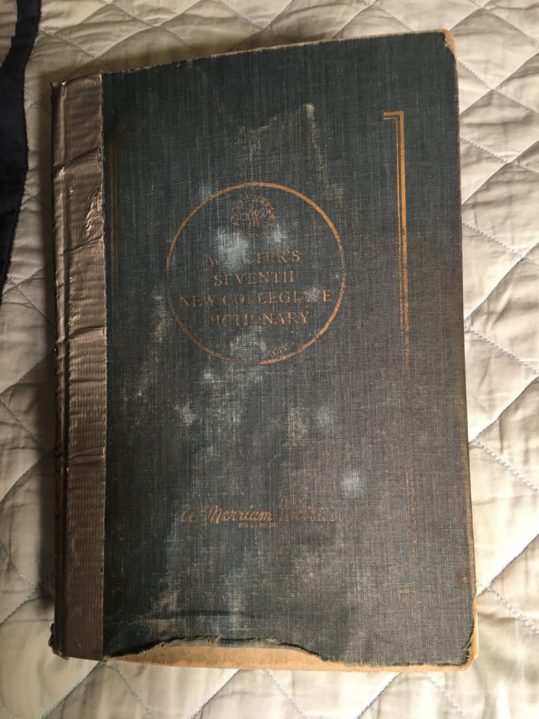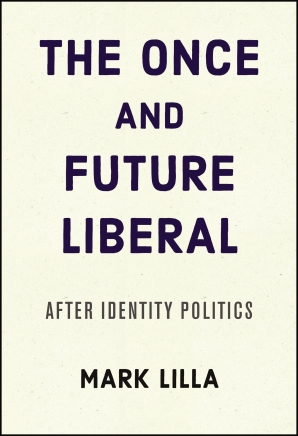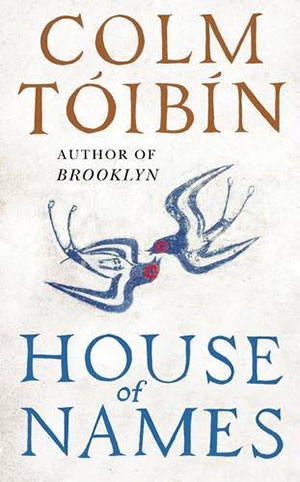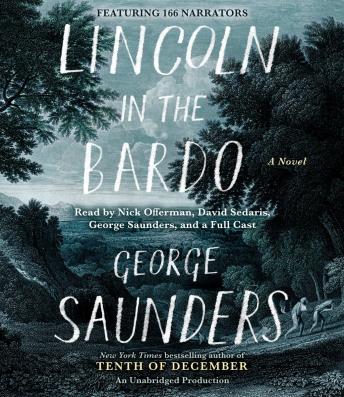How Baby Boomers Broke America
ONE
Lately, most Americans, regardless of their political leanings, have been asking themselves some version of the same question: How did we get here? How did the world’s greatest democracy and economy become a land of crumbling roads, galloping income inequality, bitter polarization and dysfunctional government?
As I tried to find the answer over the past two years, I discovered a recurring irony. About five decades ago, the core values that make America great began to bring America down. The First Amendment became a tool for the wealthy to put a thumb on the scales of democracy. America’s rightly celebrated dedication to due process was used as an instrument to block government from enforcing job-safety rules, holding corporate criminals accountable and otherwise protecting the unprotected. Election reforms meant to enhance democracy wound up undercutting democracy. Ingenious financial and legal engineering turned our economy from an engine of long-term growth and shared prosperity into a casino with only a few big winners.
These distinctly American ideas became the often unintended instruments for splitting the country into two classes: the protected and the unprotected. The protected overmatched, overran and paralyzed the government. The unprotected were left even further behind. And in many cases, the work was done by a generation of smart, hungry strivers who benefited from one of the most American values of all: meritocracy.
This is not to say that all is rotten in the United States. There are more opportunities available today for women, nonwhites and other minorities than ever. There are miracles happening daily in the nation’s laboratories, on the campuses of its world-class colleges and universities, in the offices of companies creating software for robots and medical diagnostics, in concert halls and on Broadway stages, and at joyous ceremonies swearing in proud new citizens.
Yet key measures of the nation’s public engagement, satisfaction and confidence – voter turnout, knowledge of public-policy issues, faith that the next generation will fare better than the current one, and respect for basic institutions, especially the government – are far below what they were 50 years ago, and in many cases have reached near historic lows.
It is difficult to argue that the cynicism is misplaced. From matters small – there are an average of 657 water-main breaks a day, for example – to large, it is clear that the country has gone into a tailspin over the last half-century, when John F. Kennedy’s New Frontier was about seizing the future, not trying to survive the present.
For too many, the present is hard enough. Income inequality has soared: inflation-adjusted middle-class wages have been nearly frozen for the last four decades, while earnings of the top 1% have nearly tripled. The recovery from the crash of 2008 – which saw banks and bankers bailed out while millions lost their homes, savings and jobs – was reserved almost exclusively for the wealthiest. Their incomes in the three years following the crash went up by nearly a third, while the bottom 99% saw an uptick of less than half of 1%. Only a democracy and an economy that has discarded its basic mission of holding the community together, or failed at it, would produce those results.
Meanwhile, the celebrated American economic-mobility engine is sputtering. For adults in their 30s, the chance of earning more than their parents dropped to 50% from 90% just two generations earlier. The American middle class, once an aspirational model for the world, is no longer the world’s richest.
Most Americans with average incomes have been left to fend for themselves, often at jobs where automation, outsourcing, the decline of union protection and the boss’s obsession with squeezing out every penny of short-term profit have eroded any sense of security. In 2017, household debt had grown higher than the peak reached in 2008 before the crash, with student and automobile loans staking growing claims on family paychecks.
Although the U.S. remains the world’s richest country, it has the third-highest poverty rate among the 35 nations in the Organisation for Economic Co-operation and Development (OECD), behind only Turkey and Israel. Nearly 1 in 5 American children lives in a household that the government classifies as “food insecure,” meaning they are without “access to enough food for active, healthy living.”
Beyond that, too few basic services seem to work as they should. America’s airports are an embarrassment, and a modern air-traffic control system is more than 25 years behind its original schedule. The power grid, roads and rails are crumbling, pushing the U.S. far down international rankings for infrastructure quality. Despite spending more on health care and K-12 education per capita than most other developed countries, health care outcomes and student achievement also rank in the middle or worse globally. Among the 35 OECD countries, American children rank 30th in math proficiency and 19th in science.
American politicians talk about “American exceptionalism” so habitually that it should have its own key on their speechwriters’ laptops. Is this the exceptionalism they have in mind?
Perhaps they should look at their own performance, which is best described as pathetic. Congress has not passed a comprehensive budget on time without omnibus bills since 1994. There are more than 20 registered lobbyists for every member of Congress. Most are deployed to block anything that would tax, regulate or otherwise threaten a deep-pocketed client.
Indeed, money has come to dominate everything so completely that the people we send to D.C. to represent us have been reduced to begging on the phone for campaign cash up to five hours a day and spending their evenings taking checks at fundraisers organized by those swarming lobbyists. A gerrymandering process has rigged easy wins for most of them, as long as they fend off primary challengers–which ensures that they will gravitate toward the special-interest positions of their donors and their party’s base, while racking up mounting deficits to pay for goods and services that cost more than budgeted, rarely work as promised and are seldom delivered on time.
TWO
The story of how all this came to be is like a movie in which everything seems clear only if it is played back from the start in slow motion. Beginning about 50 years ago, each scene unfolded slowly, usually without any sign of its ultimate impact. The story of America’s tailspin is not about villains, though there are some. It is not about a conspiracy to bring the country down, nor did it spring from one single source.
But there is a theme that threads through and ties together all the strands: many of the most talented, driven Americans used what makes America great–the First Amendment, due process, financial and legal ingenuity, free markets and free trade, meritocracy, even democracy itself–to chase the American Dream. And they won it, for themselves. Then, in a way unprecedented in history, they were able to consolidate their winnings, outsmart and co-opt the forces that might have reined them in, and pull up the ladder so more could not share in their success or challenge their primacy.
By continuing to get better at what they do, by knocking away the guardrails limiting their winnings, aggressively engineering changes in the political landscape, and by dint of the often unanticipated consequences of their innovations, they created a nation of moats that protected them from accountability and from the damage their triumphs caused in the larger community. Most of the time, our elected and appointed representatives were no match for these overachievers. As a result of their savvy, their drive and their resources (and a certain degree of privilege, as these strivers may have come from humble circumstances but are mostly white men), America all but abandoned its most ambitious and proudest ideal: the never perfect, always debated and perpetually sought after balance between the energizing inequality of achievement in a competitive economy and the community-binding equality promised by democracy. In a battle that began a half-century ago, the achievers won.
The result is a new, divided America. On one side are the protected few – the winners – who don’t need government for much and even have a stake in sabotaging the government’s responsibility to all of its citizens. For them, the new, broken America works fine, at least in the short term. An understaffed IRS is a plus for people most likely to be the target of audits. Underfunded customer service at the Social Security Administration is irrelevant to those not living week to week, waiting for their checks. Except for the most civic-minded among them, corporate executives are not likely to worry that their government doesn’t produce a comprehensive budget. They don’t worry about the straitjacket their government faces in recruiting and rewarding talent or in training or dismissing the untalented because of a broken civil-service system. Civil service is another great American reform that in the last 50 years has become a great American moat, protecting incompetent or corrupt workers, like those who supervised the Veterans Affairs hospitals where patient waiting lists were found to have been falsified.
On the other side are the unprotected many. They may be independent and hardworking, but they look to their government to preserve their way of life and maybe even improve it. The unprotected need the government to provide good public schools so that their children have a chance to advance. They need a level competitive playing field for their small businesses, a fair shake in consumer disputes and a realistic shot at justice in the courts. They need the government to provide a safety net to ensure that their families have access to good health care, that no one goes hungry when shifts in the economy or temporary setbacks take away their jobs and that they get help to rebuild after a hurricane or other disaster. They need the government to ensure a safe workplace and a living minimum wage. They need mass-transit systems that work and call centers at Social Security offices that don’t produce busy signals. They need the government to keep the political system fair and protect it from domination by those who can give politicians the most money. They need the government to provide fair labor laws and to promote an economy and a tax code that tempers the extremes of income inequality and makes economic opportunity more than an empty cliché.
The protected need few of these common goods. They don’t have to worry about underperforming public schools, dilapidated mass-transit systems or jammed Social Security hotlines. They have accountants and lawyers who can negotiate their employment contracts or deal with consumer disputes, assuming they want to bother. They see labor or consumer-protection laws, and fair tax codes, as threats to their winnings–which they have spent the last 50 years consolidating by eroding these common goods and the government that would provide them.
That, rather than a split between Democrats and Republicans, is the real polarization that has broken America since the 1960s. It’s the protected vs. the unprotected, the common good vs. maximizing and protecting the elite winners’ winnings.
THREE
I was one of those elite winners. In 1964, I was a bookworm growing up in Far Rockaway, a working-class section of Queens. One day, I read in a biography of John F. Kennedy that he had gone to something called a prep school. None of my teachers at Junior High School 198 had a clue what that meant, but I soon figured out that prep school was like college. You got to go to classes and live on a campus, only you got to go four years earlier, which seemed like a fine idea. It seemed even better when I discovered that some prep schools offered financial aid. I ended up at Deerfield Academy, in Western Massachusetts, where the headmaster, Frank Boyden, told my worried parents, who ran a perpetually struggling liquor store, that his financial-aid policy was that they should send him a check every year for whatever they could afford.
Three years later, in 1967, I found myself sitting in the headmaster’s office one day in the fall of my senior year with a man named R. Inslee Clark Jr., the dean of admissions at Yale. Clark looked over my record and asked me a bunch of questions, most of which were about where I had grown up and how I had ended up at Deerfield. Then he paused, looked me in the eye and asked if I really wanted to go to Yale – if it was my first choice. When I said yes, Clark’s reply was instant: “Then I can promise you that you are in. I will tell Mr. Boyden that you don’t have to apply anywhere else. Just kind of keep it to yourself.”
What I didn’t know then was that I was part of a revolution being led by Clark, whose nickname was Inky. I was about to become one of what would come to be known as Inky’s boys and, later, girls. We were part of a meritocracy infusion that flourished at Yale and other elite education institutions, law firms and investment banks in the mid-1960s and ’70s. It produced great progress in equalizing opportunity. But it had the unintended consequence of entrenching a new aristocracy of rich knowledge workers who were much smarter and more driven than the old-boy network of heirs born on third base–and much more able to enrich and protect the clients who could afford them.
After college, I went on to Yale Law School and graduated in 1975, at a time when demand for lawyers in the flourishing knowledge-worker economy was exploding. By the mid-1980s, in terms of dollars generated, the legal industry was bigger than steel or textiles, and about the same size as the auto industry. The new lawyers were increasingly concentrated in fast-growing firms that served large corporations and were prepared to pay skyrocketing salaries to attract the best talent. Soon, the gap between pay in the private and public sectors was too large to attract enough talented young lawyers to government or public-interest law–a change described by Stanford law professor Robert Gordon in 1988 as “one of the most antisocial acts of the bar in recent history.”
I played a role in this “antisocial” movement. In 1979, I started a magazine called the American Lawyer, which focused on the business of law firms and the intriguing questions lurking behind their elegant reception areas. Which ones were best managed? Which offered the most opportunity to women or minorities? Which were more likely to promote associates to partnership? Which had the fairest or most generous bonus systems? And, yes, which provided the highest profits for partners?
That last question resulted in the American Lawyer launching a special issue every summer, beginning in 1985, in which we deployed reporters to pierce the secrecy of these private partnerships so that the magazine could rank the revenues and average profits taken home by partners at the largest firms. When the first survey was published, I received a call from a former classmate who practiced at a large Los Angeles firm. He was outraged because he–and his wife–had found out that another classmate who worked at a seemingly fungible L.A. firm made about 25% more than he did. Until then, they had been perfectly happy with his six-figure income.
The fallout from this report and those from similar trade publications was significant and double-edged. The new flow-of-market information about these businesses made those who ran them more accountable to their partners, their employees and their clients, but it also transformed the practice of law by the country’s most talented lawyers in ways that had significant drawbacks. The emphasis was now fully on serving those clients who could pay the most.
FOUR
The Meritocracy’s ascent was about more than personal profit. As my generation of achievers graduated from elite universities and moved into the professional world, their personal successes often had serious societal consequences. They upended corporate America and Wall Street with inventions in law and finance that created an economy built on deals that moved assets around instead of building new ones. They created exotic, and risky, financial instruments, including derivatives and credit default swaps, that produced sugar highs of immediate profits but separated those taking the risk from those who would bear the consequences. They organized hedge funds that turned owning stock into a minute-by-minute bet rather than a long-term investment. They invented proxy fights, leveraged buyouts and stock buybacks that gave lawyers and bankers a bonanza of new fees and maximized short-term profits for increasingly unsentimental shareholders, but deadened incentives for the long-term growth of the rest of the economy.
Regulatory agencies were overwhelmed by battalions of lawyers who brilliantly weaponized the bedrock American value of due process so that, for example, an Occupational Safety and Health Administration rule protecting workers from a deadly chemical could be challenged and delayed for more than a decade and end up being hundreds of pages long. Lawyers then contested the meaning of every clause while racking up fees of hundreds of dollars per hour from clients who were saving millions of dollars on every clause they could water down.
They deployed litigators to fend off private-sector unions in the South and to defend their firings of union supporters and other blatant violations of law, for which they happily paid fines equivalent to 1% to 2% of what they saved by underpaying their workers.
Deploying the First Amendment right to “petition the Government for a redress of grievances,” thousands of achievers began in the 1970s to turn Washington into a colony of lobbyists. Through the power of the campaign cash increasingly wielded by their clients, much of which they helped raise and distribute, the hordes of lobbyists were able to get riders or exemptions worth billions inserted into legislation governing trade, the tax code, job safety or industry subsidies. Although labor laws were routinely being violated by employers in highly publicized fights, and Democrats controlled both houses of Congress and the White House, they were able to block legislation introduced by President Jimmy Carter that would have toughened penalties for violations and helped level what had become a lopsided playing field when it came to organizing unions in the private sector. As private-sector unions continued to dwindle, the achievers made sure that no similar legislation even came up for a vote in the four decades that followed.
A landmark 1976 Supreme Court case brought by lawyers for consumer-rights activist Ralph Nader gave corporations that owned drugstores a First Amendment right to inform consumers by advertising their prices. In the years that followed, lawyers for the protected morphed that consumer-rights victory into a corporate free-speech movement. The result has been court decisions allowing unlimited corporate money to overwhelm democratic elections and other rulings allowing corporations to challenge regulations related to basic consumer-protection issues, like product labeling.
As government was disabled from delivering on vital issues, the protected were able to protect themselves still more. For them, it was all about building their own moats. Their money, their power, their lobbyists, their lawyers, their drive overwhelmed the institutions that were supposed to hold them accountable–government agencies, Congress, the courts.
There may be no more flagrant example of the achievers’ triumph than how they were able to avoid accountability when the banks they ran crashed the economy. The CEOs had been able to get the courts to treat their corporations like people when it came to protecting the corporation’s right to free speech. Yet after the crash, CEOs got prosecutors and judges to treat them like corporations when it came to personal responsibility. The corporate structures they had built were so massive and so complex that, the prosecutors decided, no senior executive could be proved to have known what was going on.
Meanwhile, the lobbyists for the big banks swarmed the often invisible process under which the thousands of pages of regulations were drafted to implement the Dodd-Frank financial-reform act, which was passed in 2010 to address the risks and regulatory gaps that precipitated the crash. As a result, about 30% of the 390 required regulations had not been promulgated as of mid-2016, according to the law firm Davis Polk. Under the Trump Administration and continued Republican control of Congress, efforts intensified to roll back the rules that were already in effect even as the big banks–which had argued that Dodd-Frank would kill their businesses–were enjoying record profits and market share.
It may be understandable for those on the losing side of this triumph of the achievers to condemn the winners as gluttons. That explanation, however, is too simple. Many of the protected class are people who have lived the kind of lives that all Americans celebrate. They worked hard. They innovated. They tried things that others wouldn’t attempt. They believed, often correctly, that they were writing new chapters in the long story of American progress.
When they created ways to package mortgages into securities that could be resold to investors, for example, it was initially celebrated as a way to get more money into the mortgage pool, thereby making more mortgages available to the middle class. But by 2007 it had become far too much of a good thing. As the financial engineers continued to push the envelope with ever-riskier versions of the original invention, they crashed the economy.
Thus, the breakdown came when their intelligence, daring, creativity and resources enabled them to push aside any effort to rein them in. They did what comes naturally – they kept winning. And they did it with the protection of an alluring, defensible narrative that shielded them from pushback, at least initially. They won not with the brazen corruption of the robber barons of old, but by drawing on the core values that have always defined American greatness.
They didn’t do it cynically, at least not at first. They simply got really, really good at taking advantage of what the American system gave them and doing the kinds of things that America treasures in the name of the values that America treasures.
And they have invested their winnings not only to preserve their bounty, but also to root themselves and their offspring in a new meritocracy-aristocracy that is more entrenched than the old-boy network. Forty-eight years after Inky Clark gave me my ticket on the meritocracy express in 1967, a professor at Yale Law School jarred the school’s graduation celebration. Daniel Markovits, who specializes in the intersection of law and behavioral economics, told the class of 2015 that their success getting accepted into, and getting a degree from, the country’s most selective law school actually marked their entry into a newly entrenched aristocracy that had been snuffing out the American Dream for almost everyone else. Elites, he explained, can spend what they need to in order to send their children to the best schools, provide tutors for standardized testing and otherwise ensure that their kids can outcompete their peers to secure the same spots at the top that their parents achieved.
“American meritocracy has thus become precisely what it was invented to combat,” Markovits concluded, “a mechanism for the dynastic transmission of wealth and privilege across generations. Meritocracy now constitutes a modern-day aristocracy.”
The frustrated, disillusioned Americans who voted for President Trump committed the ultimate act of rejecting the meritocrats – epitomized by the hardworking, always prepared, Yale Law – educated Hillary Clinton – in favor of an inexperienced, never-prepared, shoot-from-the-hip heir to a real estate fortune whose businesses had declared bankruptcy six times. He would “drain the swamp” in Washington, he promised. He would take the coal industry back to the greatness it had enjoyed 80 years before. He would rebuild the cities, block immigrants with a great wall, provide health care for all and make the country’s infrastructure the envy of the world, while cutting everyone’s taxes. Forty-six percent of those who voted figured that things were so bad, they might as well let him try.
FIVE
It seems like a grim story. Except that the story isn’t over. During the past two years, as I have discovered the people and forces behind the 50-year U.S. tailspin, I have also discovered that in every arena the meritocrats commandeered there are now equally talented, equally driven achievers who have grown so disgusted by what they see that they are pushing back.
From Baruch College in Manhattan to the University of California, Irvine, more colleges are working to break down the barriers of the newly entrenched meritocracy. Elite Eastern institutions such as Amherst, Vassar and Princeton are using aggressive outreach campaigns to attract applicants who might otherwise be unaware of the schools’ generous financial-aid packages.
Entrepreneurs like Jukay Hsu, a Harvard-educated Iraq War veteran who runs a nonprofit called C4Q out of a converted zipper factory in Queens, are making eye-opening progress with training programs aimed at lifting those displaced by automation or trade back into middle-class software-engineering jobs. “Some of the smartest, hardest-working people I’ve ever met were soldiers who didn’t graduate from college,” says Hsu. (Disclosure: I am an uncompensated board member of C4Q.)
Even Washington is poised to benefit from the new wave of achievers. Issue One, a nonprofit ensconced in an office on lobbyists’ row on K Street, is fighting for campaign-finance reforms and pushing legislation that would limit the influence of lobbyists by reining in their checkbooks. The group is supported by a growing band of disillusioned politicians from both parties. Better Markets, a well-funded lobbying organization that squares off against the usual lobbyists and is filled with people whose meritocracy credentials match those of their adversaries, is going after continuing abuses and lack of accountability on Wall Street. Two other organizations, the Bipartisan Policy Center and the Partnership for Public Service, are preparing blueprints for civil-service reform, tax reform, better budgeting and contracting, and infrastructure investment–all of which can attract bipartisan support if and when our elected officials finally get pushed to act.
Although their work is often frustrating, the worsening status quo seems to energize those who are pushing back. “My kid complained the other day that he still couldn’t play the violin, even though he’d been practicing for two days,” says Max Stier, president of the Partnership for Public Service. “Well, yeah, that’s true, but you have to keep at it. Persistence is an underrated virtue.”
Stier and the others believe that the country will overrun the lobbyists and cross over the moats when enough Americans see that we need leaders who are prepared and intelligent, who can channel our frustration rather than exploit it, and who can unite the middle class and the poor rather than divide them. They are certain that when the country’s breakdown touches enough people directly and causes enough damage, the officeholders who depend on those people for their jobs will be forced to act.
The new achievers are doing what they do not because they are gluttons for frustration, but because they believe that America can be put back on the right course. They are laying the groundwork for the feeling of disgust to be channeled into a restoration.
Brill is the author of Tailspin, from which this article is adapted, out this month from Alfred A. Knopf, an imprint of The Knopf Doubleday Publishing Group, a division of Penguin Random House LLC




 Photograph courtesy Shackleton Foundation
Photograph courtesy Shackleton Foundation




 (Could it be because of base running? Photo by Denny Medley, Reuters)
(Could it be because of base running? Photo by Denny Medley, Reuters)



